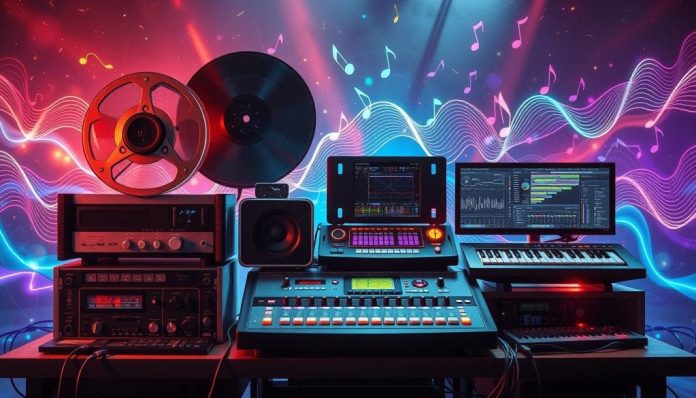The year 2025 has marked a significant milestone in the integration of artificial intelligence (AI) with music creation and consumption. What was once a novelty is now an integral part of the industry, shaping everything from composition to performance and audience engagement.
AI as a Creative Partner
Gone are the days when AI was limited to generating basic melodies. In 2025, AI tools collaborate with artists, offering sophisticated inputs on harmony, rhythm, and instrumentation. Platforms like Amper and AIVA have evolved into dynamic creative assistants, helping musicians craft unique sounds while preserving their artistic identity.
For instance, the latest album by globally acclaimed artist Lyra Nova was co-created with an AI that analyzed her past work, suggesting innovative ways to reinterpret her signature style. The result? A groundbreaking fusion of human emotion and machine precision.
Personalized Listening Experiences
Streaming services now use AI to create hyper-personalized playlists that adapt in real-time to listeners’ moods, activities, and even weather conditions. Spotify’s 2025 update introduced immersive soundscapes that adjust to biometric feedback, offering an unparalleled level of engagement.
Challenges and Controversies
Despite its benefits, the rise of AI in music has sparked debates about authenticity and copyright. As AI-generated compositions become indistinguishable from human creations, questions about ownership and artistic merit have intensified.
As the boundaries between technology and creativity blur, 2025 stands as a turning point in the music industry. AI is not just a tool but a collaborator, pushing the limits of what music can achieve.

